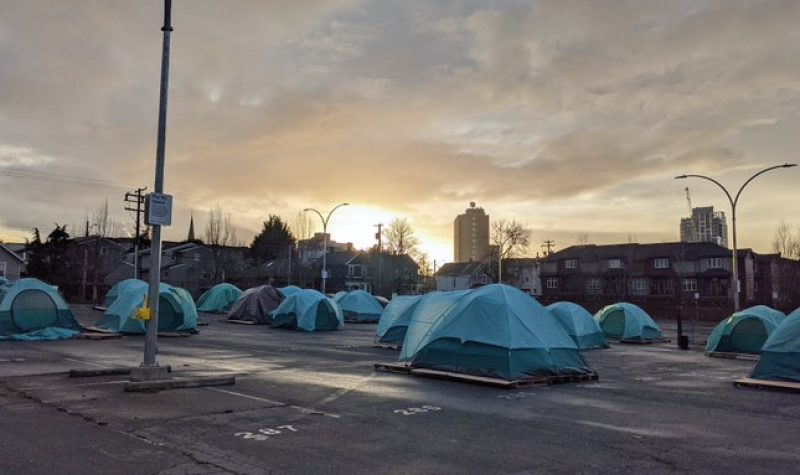Katie Fillion, a board Member of the North Park Neighbourhood Association (NPNA), is reflecting on the relocation of unhoused people from Central Park to Royal Athletic Park after recent flooding from heavy rain and snow.
Fillion, who lives near the park and is familiar with the conditions as well as the community that shelters in Central Park, states that those aware of the situation knew that relocation was only a matter of time.
The NPNA had previously provided care for the unhoused community by donating food, doing wellbeing checks and seeking out support when necessary. Concerned for months over the conditions within Central Park, when the weather further exasperated the situation, the NPNA posted photos to social media in an effort to garner support from the government.
“One of our board members, his daughter took photos of the flooding, there was a video made by Krista. So think all of that really helped mobilize the city and the province to take action. But it's frustrating, because we've been asking for folks to be allowed to move into the parking lot or a similar dry place for months,” said Fillion.
Here is a video from Krista Loughton on the recent flooding:
Following this, the City of Victoria issued a media release on Dec. 23 addressing the move as well as announcing that extra support would be provided to the homeless community in the form of new tents and bedding.
Lack of support from BC Housing
Members of the NPNA, additional volunteers, and the unhoused community worked on Christmas Day and night to set up. While materials were delivered as promised, Fillion states the support necessary to set up the new tents and platforms was lacking.
“What happened is there were some tents donated by the firefighters and they were dropped off, along with some bedding and some cots. And then that was it. There was no support from BC housing. We were pretty much left as volunteers trying to scramble to build platforms to put up tents,” said Fillion.
Fillion states that while the city has been taking steps to address the issue, finding solutions for the unhoused community should happen at the provincial level
“The city has been doing their best, but the city doesn't have the budget or the funding or the expertise to manage a housing crisis that, falls on the province,” said Fillion. “It’s been really heartbreaking and really frustrating. Because, like not only is living in a parking lot, not a solution, but this is a parking lot that has been set up by volunteers who have no expertise in setting up an encampment. Like I'm just a mom that lives across the street, like I'm doing my best, but yeah, I think it was it was it was a failure on the part of BC housing, honestly.”
The debate over Oak Bay Lodge
In regards to long term solutions, the City of Victoria had addressed reusing Rogers Arena Stadium as a shelter although nothing has been confirmed. Another possible solution that was ruled out in the fall by BC Housing was the use of the vacant Oak Bay Lodge. With a vacancy of 235 spots, the long term care home was dismissed for being unsuitable due to old building conditions.
Fillion states another reason they were told the space could not be used for the unhoused community was due to a covenant outlining the space could only be used to house senior citizens.
“We have a lot of senior citizens living in our park. We have senior citizens in the parking lot we have senior citizens at Central Park. So we did ask the province to open up Oak Bay Lodge to at least the senior citizens who are unhoused and that hasn't happened, and that is that is heartbreaking. That is like really, really a shame,” said Fillion.
Fillion states that not only are many of the unhoused community seniors, but they are seniors with preexisting health conditions and disabilities.
The unhoused community in Central Park
While outside support is necessary in finding long term solutions for the unhoused community, Fillion emphasized that although the NPNA aided in the move, the unhoused community has been an integral force in improving the situation.
“I think it's really important to recognize the unhoused people in our neighbourhood who have been not just living this, but they've been there every day supporting their unhoused neighbours. They've been keeping the site safe. They've been volunteering their time to organize just like clean. They're doing garbage sweeps; they're checking on each other. They're building platforms,” said Fillion.
“So as much as the house volunteers are there working, the unhoused people are the ones who are who are really leading things. Their labor and their time, and their efforts really need to be recognized. Because they're just, they're just doing an incredible, incredible job," Fillion added.


